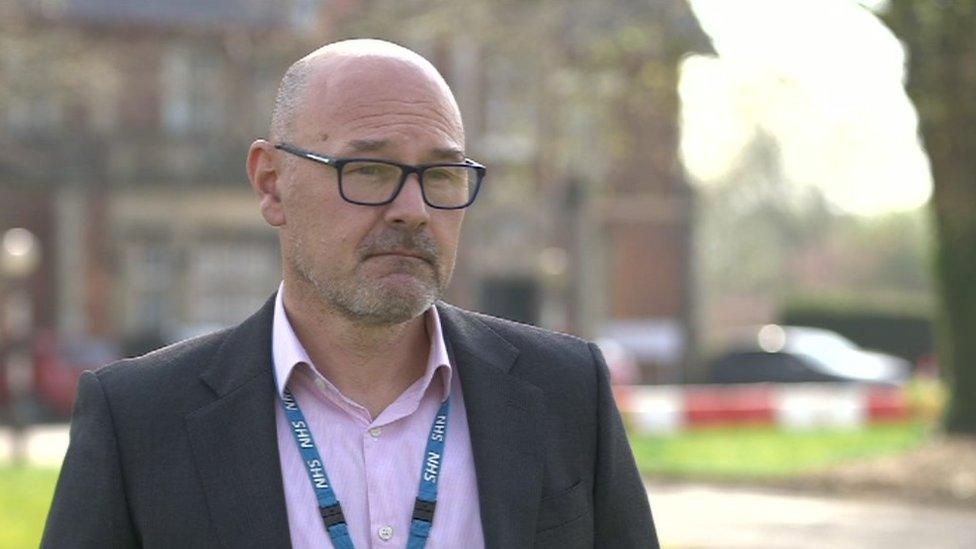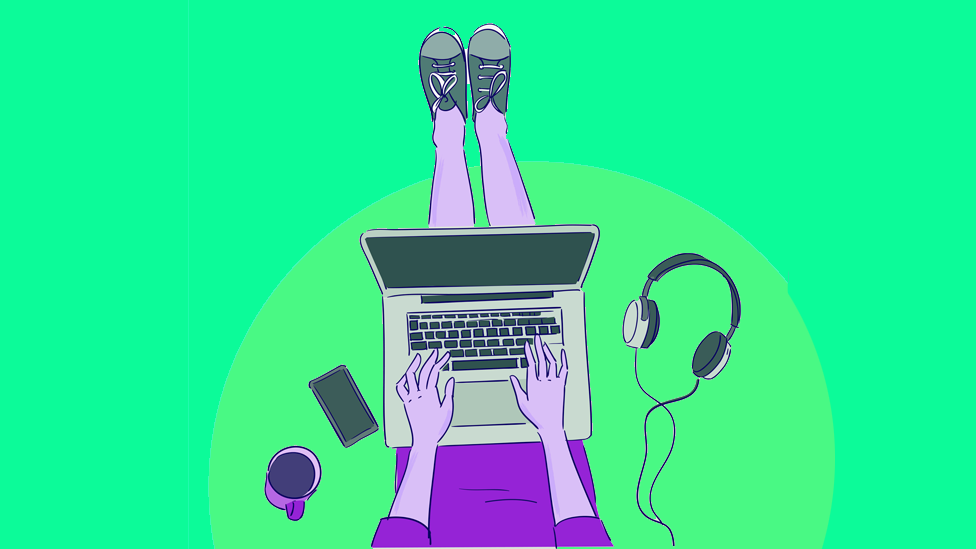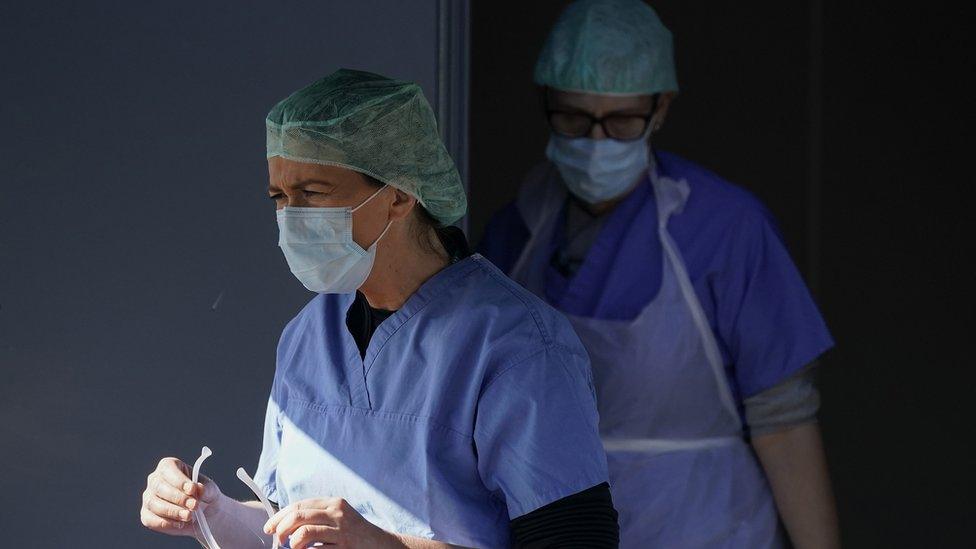Coronavirus: NHS staff mental health hotline expands
- Published

Healthcare staff on the front-line could be suffering PTSD and "moral injury", mental health experts say
Retired paramedics and nurses are being recruited into an expanded mental health support hotline service for front-line NHS workers in Wales.
All front-line workers will be able to use it, including nurses, paramedics, students and administrative staff.
More than 2,000 former doctors, nurses and other healthcare workers have re-joined NHS Wales to help treat the rising number of coronavirus patients.
Staff often have to treat family and colleagues, a psychologist has said.
The Welsh Government has provided an extra £1m to fund the service, which was set-up by Cardiff University.
It will be used to employ extra psychiatrists and medical advisers, run counselling sessions and help workers deal with post-traumatic stress disorder (PTSD).
It comes as counsellors are being recruited by health boards to provide extra support for staff.
The service will go from serving 10,000 doctors to 60,000 healthcare staff across Wales, according to Prof Debbie Cohen, director of HHP.

Prof Debbie Cohen says it is "absolutely vital" for NHS staff to have a "confidential space" to talk
"They may be feeling guilt for not being able to go into work while others are able to, or trauma from what they are seeing each day on the front line," Prof Cohen said.
"It is absolutely vital that these workers have a confidential space where they feel they can talk to peers and can access help and support in a way that suits them."
Out-of-hours healthcare workers can access the NHS England support line, which was launched last week.
New figures from the Welsh Government show 1,376 doctors and 417 nurses have returned to work.
More than 460 people have died in Wales after testing positive for coronavirus, among them front-line nurses and doctors.
Many NHS workers may not seek counselling for months while they try to process working on the front line, sometimes treating friends, relatives and colleagues who have the virus, consultant clinical psychologist Dr Adrian Neal said.

Psychologist Dr Adrian Neal says NHS staff in Wales were sometimes caring for friends, relatives and colleagues
Dr Neal, who is head of Aneurin Bevan University Health Board's wellbeing service, added staff could be sustaining "moral injury" from the pandemic.
Moral injury most often occurs when a person commits, fails to prevent or witnesses an act that goes against their moral beliefs.
"A lot of our staff work and live in the area, so that the overlap between caring for people that you work with or caring for people that you know or are related to, is becoming a reality," said Dr Neal.
"Not being able to offer the care to families that you'd like to - all of these will have an impact."
He said little was known at this point about the long-term impact, although "we are fully aware there will be one".
"I think it will affect how we work, it'll affect how we see our work, how we see our colleagues," Dr Neal added.
"In the short to medium-term, I think there's going to be a lot of exhaustion, there's going to be a lot of fatigue, both physical and emotional."
If you have been affected by the issues raised in this story, you can find support and information at BBC Action Line.

A SIMPLE GUIDE: How do I protect myself?
AVOIDING CONTACT: The rules on self-isolation and exercise
WHAT WE DON'T KNOW How to understand the death toll
TESTING: Can I get tested for coronavirus?
LOOK-UP TOOL: Check cases in your area

- Published14 April 2020

- Published1 April 2020

- Published7 April 2020

- Published12 April 2020
